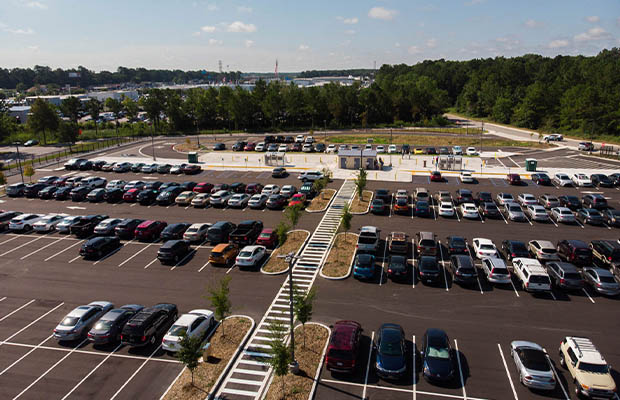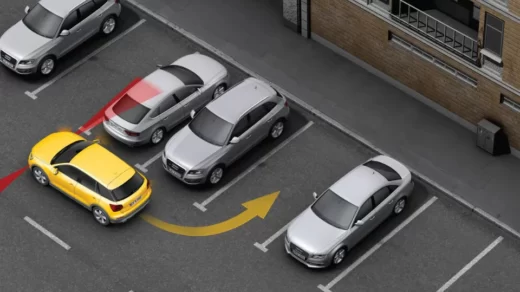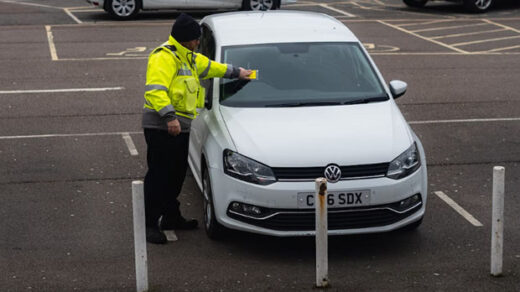You recently purchased a new vehicle, and you can’t wait to show it off to your loved ones. Then you start to wonder: where can I park my unregistered car?
You may leave an unregistered vehicle in your driveway. On the other hand, let’s say you intend to leave the car there for a while. If so, you should inquire with your local government to see if there are any laws that forbid unregistered vehicles from parking on private property.
Because of the worry that the car will end up in the hands of the police, parking an unregistered car can occasionally be very stressful. In this article, we’ll look at the risks involved in parking an unregistered car in your driveway legally.
Table of Contents
What is An Unregistered Car?
An unregistered car is any vehicle without a valid registration plate, regardless of the state it is in, including neat or damaged. Therefore, you have not yet registered it or had it renewed.
Some vehicles are legally exempt from registration for reasons best known to them, but for average citizens like you and me, it’s critical that your vehicle has an up-to-date registration plate in order to be permitted to be in any public setting.
Where Can I Park My Unregistered Car?
You might be wondering where you can park an unregistered vehicle. While some public parking options are available, they may not be ideal for long-term parking. Here are a few other options to consider:
Private Property
One option is to park your unregistered car on private property, such as a friend or family member’s driveway. Just make sure to first obtain authorization from the property owner.
Park and Ride Lots

The use of a park and ride is an additional choice. These are usually located near public transportation hubs and allow you to park your car for a fee.
Storage Units
You can always rent a storage unit if you can’t find a private property or park and ride lot to leave your car in. These days, storage units are becoming more and more common, and they are also very inexpensive. You can even find storage facilities with 24-hour security, giving you peace of mind that your car is secure.
Read More:
How Long Can You Park Your Unregistered Car?
You can park your unregistered car on public property for up to 72 hours, but after that, you must either register it or move it. Your vehicle might be towed and impounded if you fail to do either of those things. A few exceptions do exist to this generalization, though. The laws are typically different, for instance, if your car is parked in your driveway.
Additionally, in some states, there are “abandoned vehicle” laws that allow police to tow away unregistered vehicles after a set period. State-specific registration costs range from $50 to $150 annually.
What Happens If You Park Your Unregistered Car in Your Driveway?
If your unregistered car is parked in your driveway, it is technically an abandoned vehicle. You could be subject to a fine if the authorities catch you. In some cases, your car may even be towed away. You might also be required to pay the towing and storage costs if it is determined that you broke the law.
Finally, your car insurance company may refuse to pay any claims if you are involved in an accident while your car is unregistered. So, before parking your car on your property, it is generally a good idea to register it.
Can I Park My Unregistered Car in the Street?
No, you cannot park your unregistered car in the street because the “street” is public property, therefore parking your car there will call the attention of the police and it will probably cost you some money to free yourself from the police officers.
Why Register Your Car?
There are a lot of benefits to registering your vehicle. By doing this, you can make sure that your car has the proper paperwork and is legal for you to drive on the road. In the event of a collision or theft, registration also offers crucial security. Here are just a few of the reasons why registration is so necessary:
Documentation
A registration certificate is proof that your vehicle exists and that you are the legal owner. If you ever need to make an insurance claim or report a theft, this documentation may be crucial.
Legal Protection
Driving an unregistered car is prohibited in the majority of states. You could be subject to fines or even have your vehicle impounded if caught doing so. Car registration provides you with legal protection in such cases.
Accident Protection
If you are involved in an accident, the other driver may try to claim that your car was not properly registered. By having registration documentation, you can prove that you were following the law and that the other driver is at fault.
Theft Protection
If your car is stolen, the police need to know the vehicle’s registration information to track it down. If your car is stolen, it might be more challenging to recover it without registration.
Conclusion on Unregistered Car Parking
You can park your unregistered car in your private garage, driveway, or storage facility away from the public eye, regardless of the circumstances. Depending on the rules in your state, unregistered cars cannot be left in the driveway for more than 30 days.
All vehicles must be registered with the DMV in order to be operated on public roads. Normally, taxes, fees, and proof of insurance are required for vehicle registration. In some states, an automobile must pass a safety inspection before it can be registered.
Read More: Where Should I Park My Car Overnight?
FAQs
Can I Park My Unregistered Car on the Street?
It is illegal to leave a vehicle, including but not limited to cars, trucks, trailers, caravans, and motorcycles, on a public road or in an area where there is a road (e.g. footpath, dividing strip or public cycle paths) once the vehicle registration has expired.
Can You Park a Car Without Plates in Your Driveway?
Yes, you can park an unregistered car in your driveway. On the other hand, let’s say you intend to leave the car there for a while.
Can You Park a Car Without Plates in NY?
According to the New York Vehicle and Traffic Law Section 402, a person cannot operate, drive or park a vehicle unless it has a distinctive number (license plate) assigned to it.



